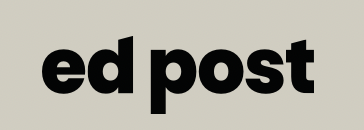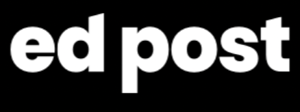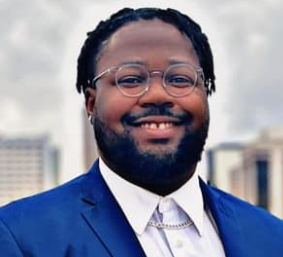Resource Hub
We encourage you to make use of all the resources listed here.
-
1Further Reading
To learn more about the displacement of tens of thousands of highly qualified Black teachers that took place following Brown v. Board of Education, read Jim Crow’s Pink Slip by Leslie T. Fenwick, dean emerita of the Howard University School of Education.
For a revealing look at the racial paternalism of the Grimké sisters and how they treated their Black family members, read The Grimkes: The Legacy of Slavery in an American Family, by Kerri K.Greenidge of Tufts University.
-
2Listen Up
To meet parents and community members of all backgrounds fighting for equity across the U.S., listen to EdPost’s recent podcast, Across Colors.
For a podcast created by educators, for educators, that shows teachers across the country challenging themselves to confront their own biases and create classrooms where students can be their full selves, check out Belonging.
-
3Take Action
The book Me and White Supremacy grew from author Layla F. Saad’s 2018 free, month-long Instagram challenge, which invited white people to dive deeper into how they uphold white supremacy and enjoy white privilege. Readers can work through the daily challenges individually and create small groups to discuss chapter questions and hold each other accountable for the challenges.
The Western States Center offers a suite of toolkits and resources to help educators and communities counter white nationalism and other forms of hate. Their latest toolkit helps caregivers counter bigoted conspiracy theories their children may encounter on the internet. You can order a free copy of their educator guide to countering white nationalism in schools here.
-
4Discussion Questions
Questions For Everyone:
- Jane Crow: Then and Now points out the historical echoes between the political efforts of conservative, mostly-white moms today and their predecessors who fought against integration and a wider view of the world than one centered on American exceptionalism. What was most surprising to you in reading Rebecca Klein’s article and her discussions with historians about the parallels between then and now?
- In your opinion, which should come first, parental rights to choose what children learn in school or the rights of the community, democratically expressed, to determine standards, content and curriculum? Why?
- In reading the concluding chapter of Elizabeth McRae’s book, Mothers of Massive Resistance: White Women and the Politics of White Supremacy, what surprised you? How much do you think has changed between the 1970s and now in terms of white mothers’ willingness to send their children to school with low-income children of color?
- Which of the women in the Gallery of Accomplices most inspires you? Why?
- If you were putting together a Gallery of Accomplices to feature white women educators of the 21st century, who would you include? Why?
- Before reading Jane Crow: Then and Now, were you aware of the history of the Port Royal Experiment? Do you think this is as well-known as other educational experiments of the 19th century? Why or why not?
- Do you agree with Minneapolis writer Lynnell Mickelsen’s assertion that the interests of teachers do not always neatly coincide with those of students and their families? Why or why not?
- What more would you like to see white women teachers, school leaders and district leaders do in your community to demonstrate real allyship with children and families of color?
- What more would you like to see white women in your community do as parents to ally themselves with children and families of color?
Questions for Parents
- As you read Keturah Kendrick’s reporting from interviews with graduates of The Young Women’s Leadership School of East Harlem, what resonated for you from their observations about how they were treated in school? What surprised you?
- As a parent, what do you think your children would say about these issues in their schools?
- Do you agree with columnist Courtney Martin that white progressive moms lack moral imagination? Is that confined to white moms, or white parents, or is there a broader issue here?
- In addressing inequities in public education, how much responsibility should progressive parents with privilege take on to personally make changes? How can they best position themselves to make change—by sending their children to schools that get less, or in some other way?
Questions for Teachers and School Leaders
- People like to be seen as individuals, but often when we’re seen by people who don’t share our cultural background, it’s easy for others to see us as only part of a group. How does knowing students may see white women teachers as “interchangeable white ladies” affect how white women could better connect with students?
- Have you had moments when you saw the “interchangeable white lady” effect in action? What happened? What could have happened differently?
- As you read Keturah Kendrick’s reporting from interviews with graduates of The Young Women’s Leadership School of East Harlem, what resonated for you from their observations about how they were treated in school? What surprised you? As a teacher, do you think your students would make similar observations about how they were treated in your school? Have you asked them?
- As you read principal Colleen McGeehan’s story of slowly recognizing the problems in her school, what surprised you? What resonated with you?
- What is cultural humility? Why is it so hard for so many adults in schools to show it to students whose cultural background differs from theirs? What can school and district leaders do to make cross-cultural awareness, competence, and humility a higher priority in schools?
- Jane Crow: Then and Now points out the historical echoes between the political efforts of conservative, mostly-white moms today and their predecessors who fought against integration and a wider view of the world than one centered on American exceptionalism. What was most surprising to you in reading Rebecca Klein’s article and her discussions with historians about the parallels between then and now?


